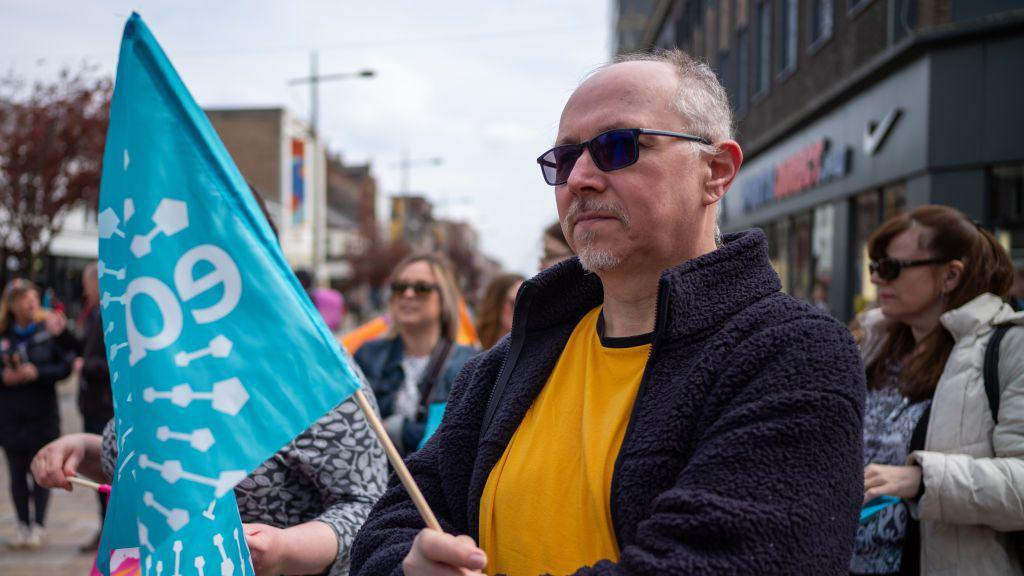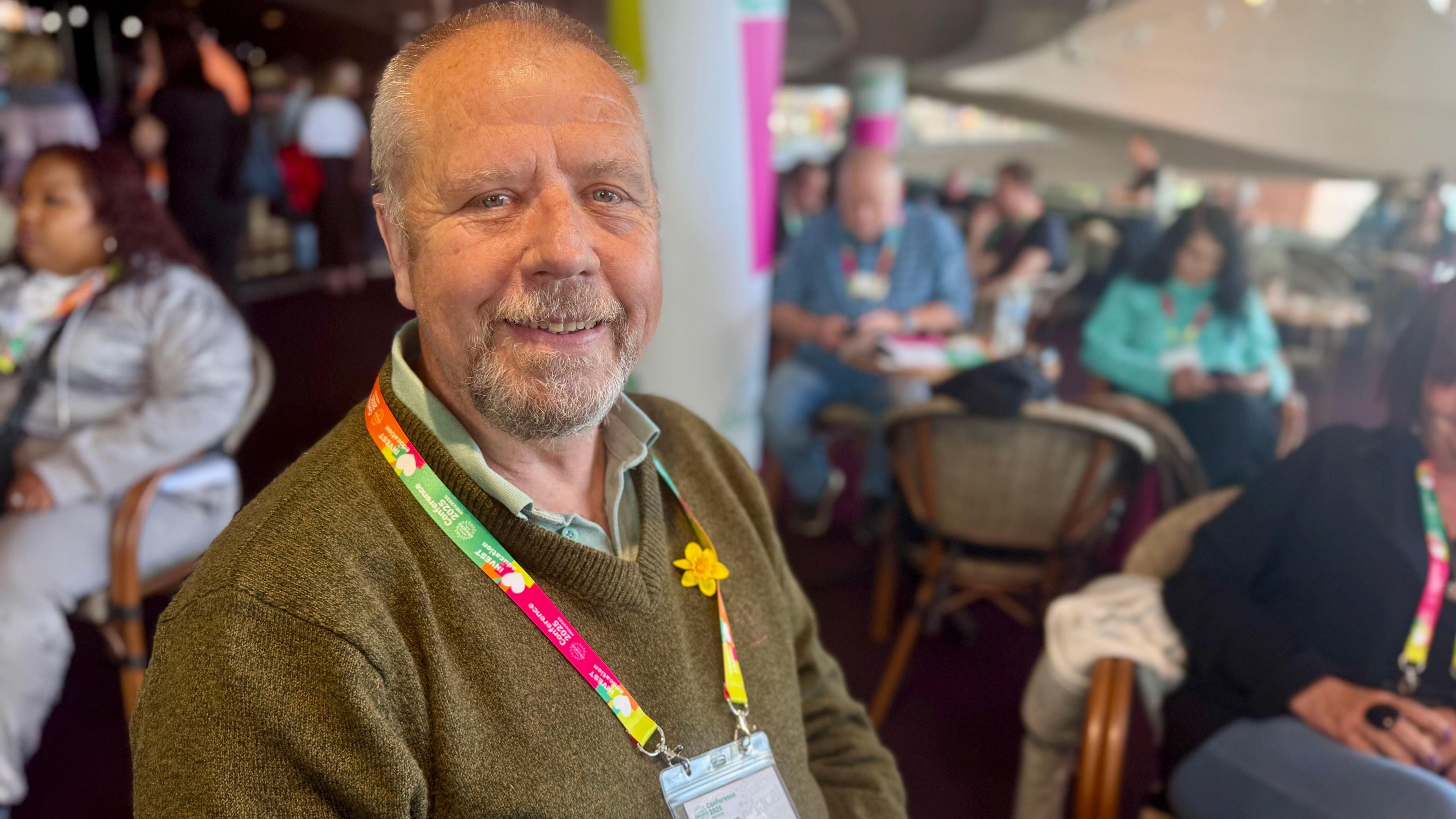Teachers in England move a step closer to striking

Schools in England closed when National Education Union members went on strike in 2023
- Published
Teachers in England will vote on whether or not to go on strike if the government stands by its pay offer for the next school year.
The National Education Union (NEU), England's largest teaching union, says it will hold a formal ballot if the offer remains "unacceptable", or if no extra funding is announced.
The government has recommended a 2.8% pay rise for teachers and expects most schools will need to make "efficiencies" to fund it.
Education Secretary Bridget Phillipson said "any move towards industrial action by teaching unions would be indefensible".
The NEU wants a higher pay rise for teachers, and for the government to announce more money so that schools do not have to pay for it from their existing budgets.
The announcement from its conference in Harrogate is a warning to ministers, but a few things would still need to happen in order for teachers to walk out of England's schools.
The union will need to reject a final decision from the government on teacher pay - including both the size of the pay rise, and whether or not there will be any additional funding for it.
If it does launch a formal ballot, enough members would need to vote and support strike action. That ballot could open for several months, meaning any strike action would likely take place in the autumn term at the earliest.
Teachers' strikes: Will there be more?
- Published15 April
Teachers in England say they would strike over pay
- Published11 April
Government recommends 2.8% pay rise for public sector
- Published11 December 2024
Dalilia Espindula, a primary school teacher from Enfield at the NEU conference, told the BBC she was "sorry" for the disruption to parents and their children if teachers were to walk out, but that strikes were "a last resort".
"We need to make 'efficiencies' - what's that meant to be? We already don't have enough," she added.

Dalilia Espindula says there isn't enough support for children with education, health and care plans
Steve Ryan, a food technology teacher from Hertfordshire, told the BBC there was "much less respect for teachers than there ever used to be" and that staff were leaving schools "in droves".
"This is my last year of teaching. I'm due to retire, and, from what I see, I wouldn't like to carry on," he said.

Steve Ryan says the biggest issue is that the pay recommendation hasn't come with additional funding
Parents in Harrogate were torn about the prospect of strikes. Katie said either she or her husband would have to take annual leave to look after their children if schools closed.
Baris, whose 10-year-old goes to a special school, said he supported teachers' right to strike but he was concerned about school closures because it was "vital" for his son to attend full time.
"He wouldn't cope well," he said. "It would really affect us badly."
Alessia, a hairdresser and mum of two, said there was "far too much" pressure on teachers.
"I would have loved to have been a primary school teacher," she said.
"But talking to so many clients who are teachers, [and hearing] their opinions of it, although they do it for the love of the job and the children, it's really just not a job that I think anyone would want any more."

Alessia doesn't think teachers would walk out "lightly"
Each year, the independent School Teachers Review Body (STRB) hears submissions from each side and makes recommendations on teacher pay to the government, who ultimately decide on how much to award.
Daniel Kebede, the NEU's general secretary, said Ms Phillipson had the STRB's report "on her desk".
"We'd like to see that published at the earliest opportunity, with the funding settlement as well, so that we can come to a conclusion to avoid any further action," he told the BBC.
"No teacher wants to take strike action, but there is nothing as disruptive, actually at the moment, as an underfunded education system."
Ms Phillipson said: "With school staff, parents and young people working so hard to turn the tide on school attendance, any move towards industrial action by teaching unions would be indefensible.
"Following a 5.5% pay award in hugely challenging fiscal context, I would urge NEU to put children first."
NEU members went on strike over pay in the first half of 2023, forcing many schools to close on eight days of action.
The NEU called off action after the government revised its 2023 offer to 6.5%.
Teachers were then given a 5.5% rise in 2024.
In December, the government recommended a 2.8% pay rise for 2025.
Last week, results from an informal NEU ballot showed 93.7% of members rejected the offer and 83.4% said they would be willing to strike.
The turnout was 47.2%.
Additional reporting by Branwen Jeffreys and Hope Rhodes.